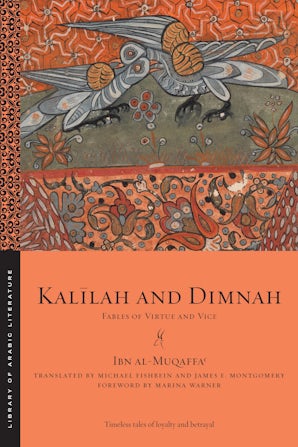
Kalīlah and Dimnah
Fables of Virtue and Vice
300 Pages
April 2023
ISBN: 9781479825776
Timeless fables of loyalty and betrayal
Like Aesop’s Fables, Kalīlah and Dimnah is a collection designed not only for moral instruction, but also for the entertainment of readers. The stories, which originated in the Sanskrit Panchatantra and Mahabharata, were adapted, augmented, and translated into Arabic by the scholar and state official Ibn al-Muqaffaʿ in the second/eighth century. The stories are engaging, entertaining, and often funny, from “The Man Who Found a Treasure But Could Not Keep It,” to “The Raven Who Tried To Learn To Walk Like a Partridge” and “How the Wolf, the Raven, and the Jackal Destroyed the Camel.”
Kalīlah and Dimnah is a “mirror for princes,” a book meant to inculcate virtues and discernment in rulers and warn against flattery and deception. Many of the animals who populate the book represent ministers counseling kings, friends advising friends, or wives admonishing husbands. Throughout, Kalīlah and Dimnah offers insight into the moral lessons Ibn al-Muqaffaʿ wished to impart to rulers—and readers.
An English-only edition.
Reviews
-
"[A] delightful new translation of a major text of classical Arabic literature."
— Al-Ahram Weekly
-
"[This translation] should immediately become the English translation of choice for this work."
— Al-Usur al-Wusta
eBooks
Exam Copy
Please list your name, institutional affiliation, course name and size, and institution address. NYU Press will cancel exam copy orders if information cannot be verified.

